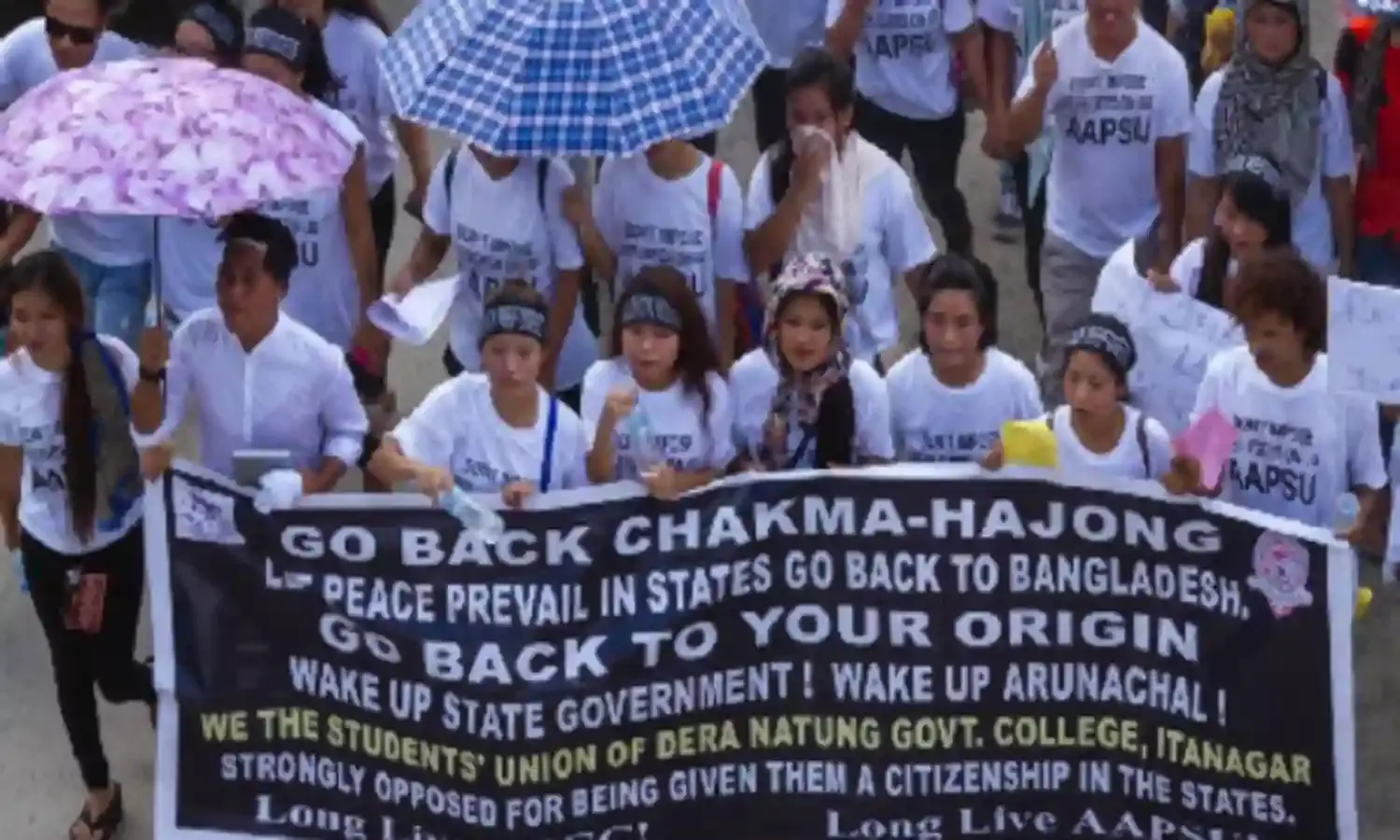Student's Union in Arunachal Accuses Govt of Citizenship Eyewash
Students Union in Arunachal Accuses Govt of Citizenship Eyewash

BASAR: A students' body in Arunachal Pradesh has accused the BJP government here of not acting in favour of the indigenous people of Arunachal Pradesh, and circumventing the law to grant citizenship rights to Chakma and Hajong refugees in the state.
During the period 1964 to 1969, around 5,000 Chakma and Hajong people who had fled their homes in Bangladesh’s Chittagong Hill Tracts following the construction of the Kaptai dam and religious persecution were settled by New Delhi in parts of Arunachal Pradesh.
Arunachal Pradesh-based students’ unions and NGOs have argued that no consent was taken from the people before they were settled, and claim that their population has crossed the one lakh mark in a state that is home to over 20 indigenous tribes, some of whom number in the thousands. Chakma and Hajong rights’ groups, meanwhile, claim that the number is around 50,000.
In September last year, in accordance with a 2015 Supreme Court order, the Centre directed the state government to grant citizenship rights to the Chakma and Hajong settlers. What followed was a state-wide bandh call that witnessed several cases of arson.
With the state and the centre set to go to elections next year, concerns are being raised once again.
While the case is currently up for review and the state government has said that the applications of 4,637 Chakman and Hajong people in the state who had sought citizenship were rejected, the All Papum Pare District Students’ Union (APPDSU) is calling the claim an eyewash.
“The present state government has eye-washed the citizens of Arunachal Pradesh by passing a resolution in the State Assembly against granting of citizenship rights to Chakma-Hajong refugees and by claiming that 4,637 applications for citizenship were rejected,” a statement from the union read.
The students’ body said that the “BJP regime has not objected” to the Election Commission of India’s decision to enrol the names of Chakma and Hajong voters in the electoral rolls of the four assembly constituencies of Doimukh, Chowkham, Bordumsa-Diyun, and Miao. It alleged that the state government had not issued an official order against those voters' registration, and that electoral registration officers had been enrolling Chakma and Hajong voters “every year in large numbers”.
The students’ body claimed that 4,800 refugee settlers in the state had indirectly been granted citizenship with their names being included in electoral rolls. This, it said, will translate into Chakmas and Hajongs settled in the state exercising dual rights as refugees and as bonafide citizens of India.
The APPDSU further threatened to launch protest movements if the state government did not delete the names of the refugee settlers from the voters’ list of the four assembly constituencies.



